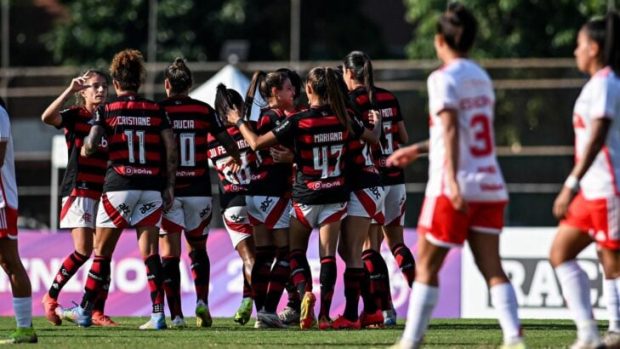
The Cleveland Browns say they’re moving forward with their plan to build an indoor stadium in suburban Brook Park. Unsurprisingly, the public bickering around the team’s planned exit from Cleveland continues.
This week, Cleveland Mayor Justin Bibb told Cleveland’s Fox 8 News that the city has “more important priorities than the Cleveland Browns” and it has to “move on. If they go to Brook Park, God bless them. Good luck.”
Advertisement
That led to Bibb’s office releasing a formal statement clarifying that the city intends to fight to keep the Browns in downtown Cleveland despite the Haslam Sports Group’s plan to build an indoor stadium in Brook Park, about 15 minutes southwest of the city and not far from the team’s daily training facility in Berea.
Mayor Bibb reinforces his commitment to protecting Cleveland taxpayers. pic.twitter.com/VXa4BC524m
— Office of Mayor Bibb (@CLEMayorsOffice) May 21, 2025
Team owners Jimmy and Dee Haslam have long explored options for a new stadium. For 18 months, they’ve been firm that they prefer to build an indoor facility over renovating the current Huntington Bank Field. The team’s current stadium lease expires after the 2028 season.
“The Haslams are taking extreme measures to relocate the team away from downtown in an irreversible move that will negatively impact Cleveland and numerous small businesses that have stood by and supported their team,” Bibb said in the statement.
Haslam Sports Group has pledged $1.2 billion in private investment, plus a promise to pay cost overruns for the Brook Park facility. With an estimated total price tag of $2.4 million, the Browns’ plan is to ask for $600 million in bonds from both the state and Cuyahoga County, money that would eventually be repaid with tax revenues created by the Brook Park stadium project.
Ohio Gov. Mike DeWine has a June 30 deadline to sign the state budget into law. The Ohio House passed its version of the budget last month, and it’s now in the state Senate. DeWine had originally proposed doubling the state tax on sports betting to raise money for new stadiums instead of pledging $600 million in state bonds.
In March, Jimmy Haslam said the Browns hoped to begin construction in early 2026 if the funding is approved next month. Last summer, the Browns formally rolled out drawings and plans for their new entertainment complex on the site of a former Ford plant. In a letter sent by Haslam Sports Group to Cuyahoga County executives earlier this month, the team essentially said it will move forward even without the county’s support.
Advertisement
“Renovating the (current) stadium and putting more than $1 billion into a short-term fix that would present the same dilemma 15 to 20 years from now is neither a strategic nor a fiscally responsible long-term approach,” the Browns’ letter said.
There have been a lot of letters and statements amid other paperwork in this Browns versus Cleveland battle. The city and team also have dueling lawsuits over the Modell Law, with Cleveland maintaining the Browns would be in violation of the 1996 law named after former team owner Art Modell if they moved to Brook Park, and the Browns filing a challenge to that in federal court.
In January, the city sued the Browns in an attempt to enforce the Modell Law, which requires a team that takes taxpayer money and plays in a tax-supported facility to either obtain the city’s permission or allow it and others to purchase the team before moving away from that facility. The Browns maintain that the Modell Law would apply only if the team were trying to move out of state, as Modell did, and that the team holds the right to move freely once the current lease expires.
The fight is not only over funding, but also how to best use the lakefront land on which the current stadium sits. There has been little new development around the stadium over three decades, and the Haslam Sports Group wants not only to hold more events year-round in Brook Park, but also to own the parking lots surrounding the new facility.
In January, Bibb called the Brook Park project “the Haslam scheme” and said it was a “ploy” that would “raise your taxes, make it more expensive for you to attend games and steal events away from downtown.”
After the Greater Cleveland Partnership endorsed the Browns’ plan to move forward with their Brook Park project, the city of Cleveland and Cuyahoga County released a joint statement saying they would no longer participate with the Greater Cleveland Partnership in meetings involving civic vision and development.
“No amount of money can account for the irreversible damage caused by the construction of an unneeded entertainment district that competes with downtown and suburban entertainment districts,” the statement said.
(Photo: Nate Ulrich / USA Today via Imagn Images)
This news was originally published on this post .








Be the first to leave a comment